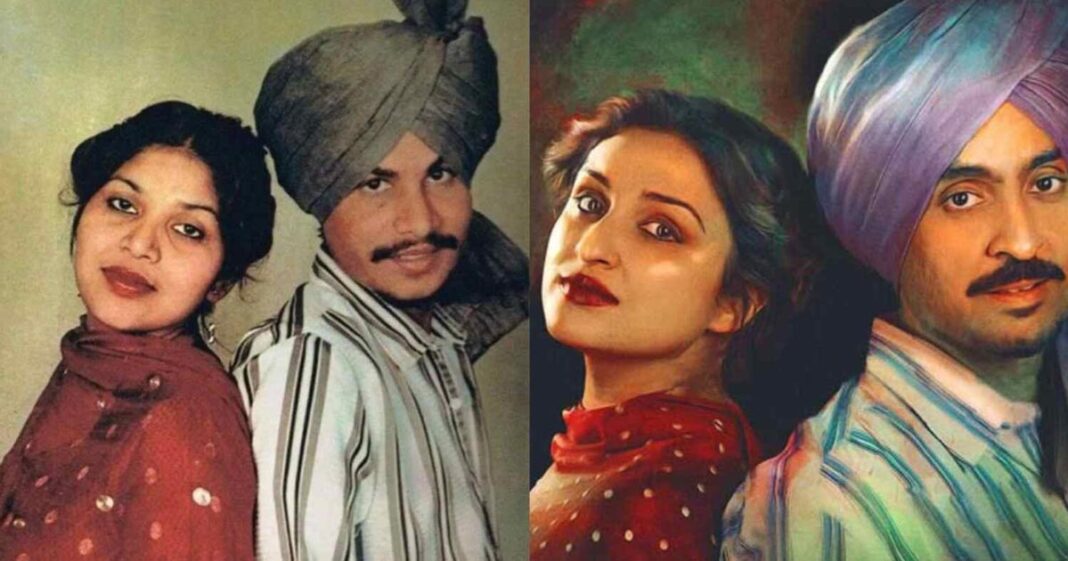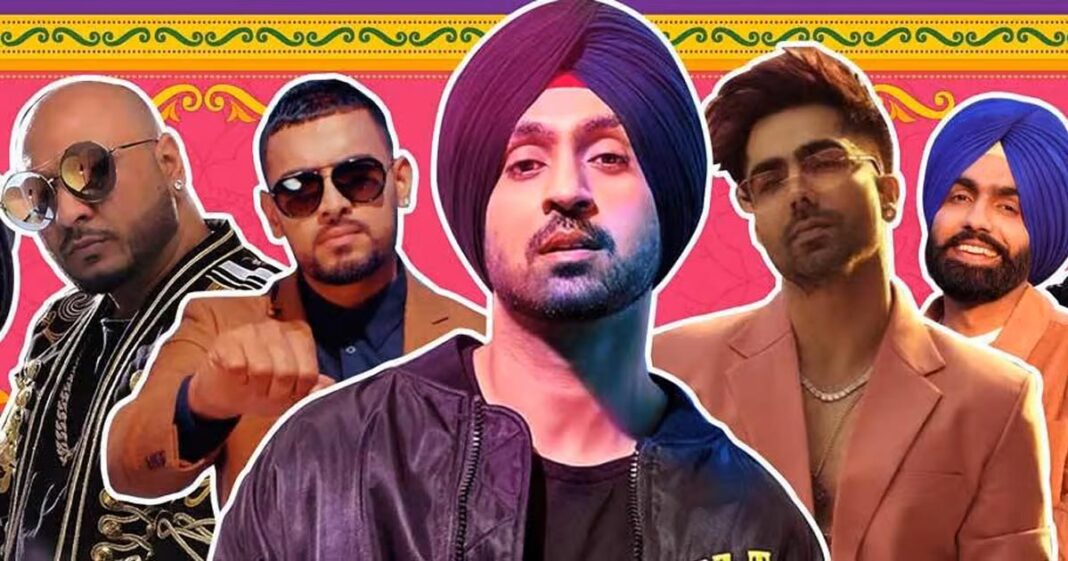The Untold Story of Amar Singh Chamkila – Punjab’s Boldest Voice in Folk Music

Few names in Punjabi music command as much respect and fascination as Amar Singh Chamkila. Known as the “Elvis Presley of Punjab,” Chamkila rose from humble beginnings to become a cultural icon whose music still resonates decades after his tragic assassination. His bold storytelling, energetic performances, and ability to capture the realities of Punjabi life made him a legend. But his journey was as controversial as it was successful, leading to a shocking and mysterious end.
The Rise of a Musical Phenomenon
Born Dhani Ram on July 21, 1960, in Dugri, Ludhiana, Chamkila displayed an early passion for music. His love for storytelling and folk tunes quickly turned into a career, and he adopted the stage name “Chamkila,” meaning “one who shines brightly.” He started his career performing with famous Punjabi folk singers of the time, but soon, his unique style set him apart.
Chamkila’s gritty lyrics and energetic singing style struck a chord with the masses. He touched upon themes rarely discussed openly, such as love, masculinity, social issues, and the struggles of rural Punjab. His music often carried a rawness that reflected the reality of Punjabi society, making him an instant favorite among the youth. Songs like “Pehle Lalkare Naal,” “Takue Te Takua,” and “Jatt Di Dushmani” became massive hits, drawing large crowds wherever he performed.
The Controversial Genius
What set Chamkila apart was not just his musical talent but his fearless storytelling. He addressed sensitive topics such as drug abuse, infidelity, and economic struggles, often using humor and satire. His lyrics were seen as both entertaining and provocative. This duality made him immensely popular yet highly controversial.
Despite his success, Chamkila faced multiple bans on his performances. His critics accused him of promoting vulgarity, while his supporters saw his music as an unfiltered reflection of real-life experiences. Yet, the bans only fueled his popularity, making him an underground sensation. His live performances were electric, often drawing thousands of fans eager to hear his next hit.
The Tragic End: A Mystery That Still Haunts Punjab
On March 8, 1988, at the peak of his career, Amar Singh Chamkila and his wife, Amarjot Kaur, were brutally assassinated in Mehsampur, Punjab. As they arrived for a performance, unknown gunmen opened fire, killing them instantly. The attack sent shockwaves through the music industry and his fanbase.
What makes Chamkila’s death even more tragic is the mystery surrounding it. To this day, the case remains unsolved, with several theories circulating about the motive behind the attack:
- Some believe it was due to rivalries within the music industry as his popularity threatened other artists.
- Others suggest that religious or political groups took issue with his controversial lyrics.
- Another theory points to personal enmities that led to his assassination.
Despite numerous investigations, no one was ever convicted for the murder, leaving behind a mystery that continues to intrigue music lovers.
The Legacy That Refuses to Fade
Even in death, Chamkila remains one of the most influential figures in Punjabi music. His songs are still played at weddings, cultural events, and social gatherings. Many modern Punjabi singers, including Diljit Dosanjh, Sidhu Moosewala, and Gurdas Maan, have acknowledged his impact on their careers.
His son, Jaiman Chamkila, has also entered the music industry, working to keep his father’s legacy alive. Additionally, Chamkila’s story has inspired documentaries, books, and films. The upcoming Netflix biopic, directed by Imtiaz Ali and starring Diljit Dosanjh, is expected to introduce his life and music to an even wider audience.
Why Chamkila Remains a Legend
Chamkila’s music was more than just entertainment—it was a mirror to society. His ability to blend social commentary with catchy beats made him a revolutionary artist. His songs weren’t just about love and relationships; they were about Punjab’s deep-rooted traditions, struggles, and unspoken truths.
Like Elvis Presley, Chamkila became a symbol of rebellion against conventional norms. He pushed boundaries and redefined Punjabi folk music, making it more relatable and impactful. His tragic death only added to his myth, ensuring that his music would never fade away.
Amar Singh Chamkila’s story is one of talent, controversy, and tragedy. He broke barriers, challenged societal norms, and connected with people in a way few artists could. Even decades after his untimely death, his songs continue to live on, reminding us of his extraordinary ability to capture the soul of Punjab. His legend is a testament to the power of fearless storytelling and the enduring impact of great music.
While his life was cut short, Chamkila remains immortal through his art—a true icon who will never be forgotten.





